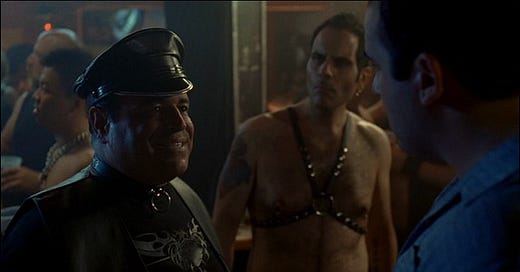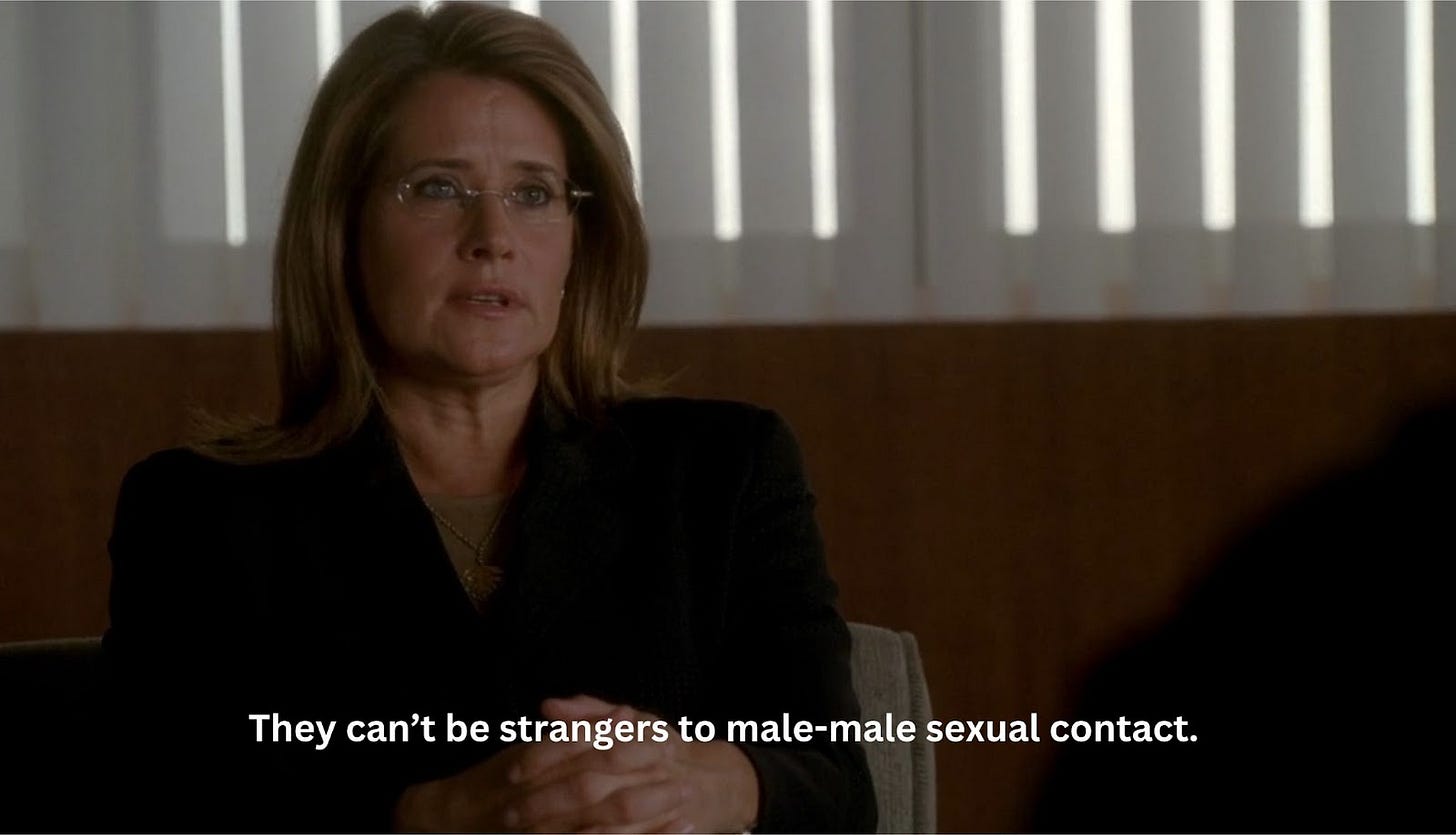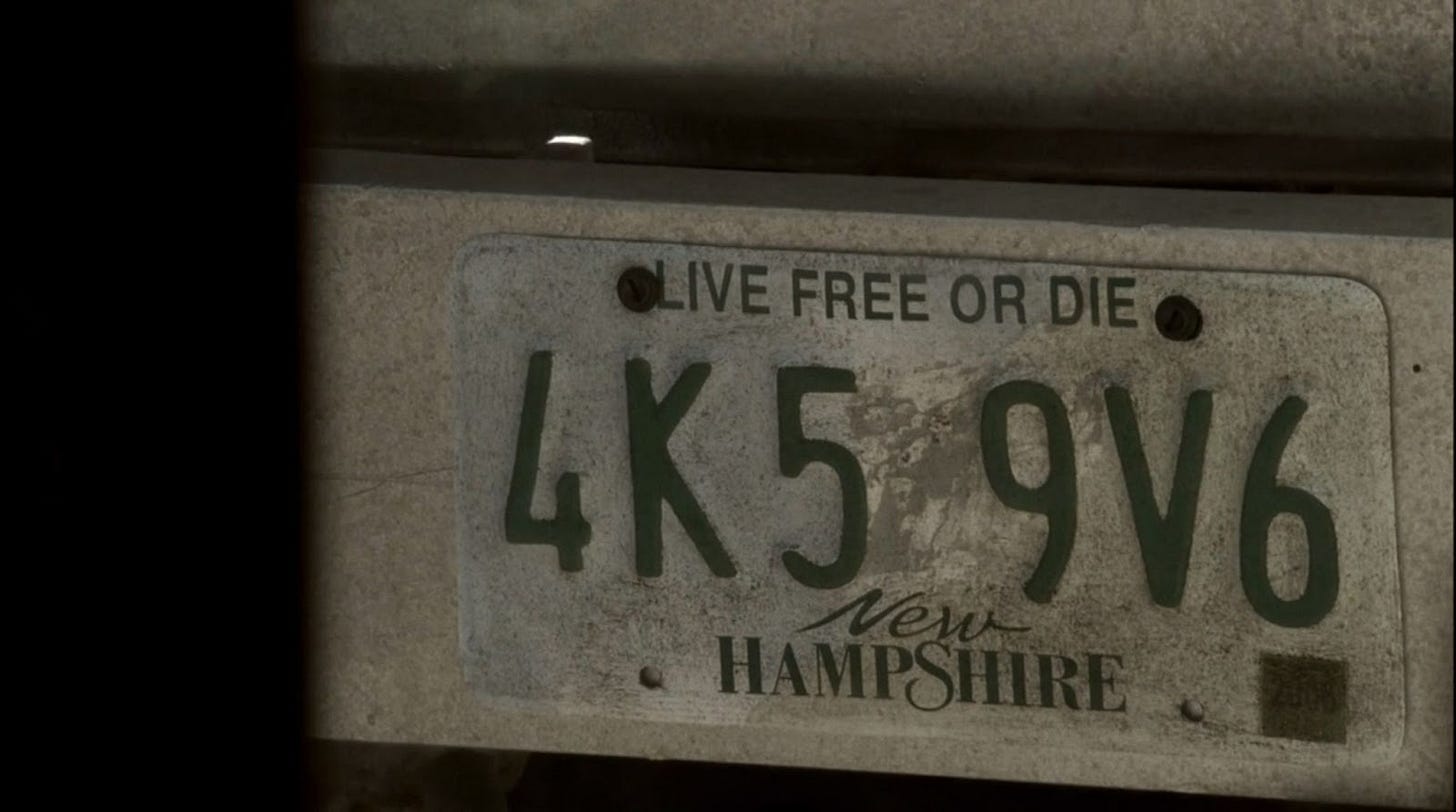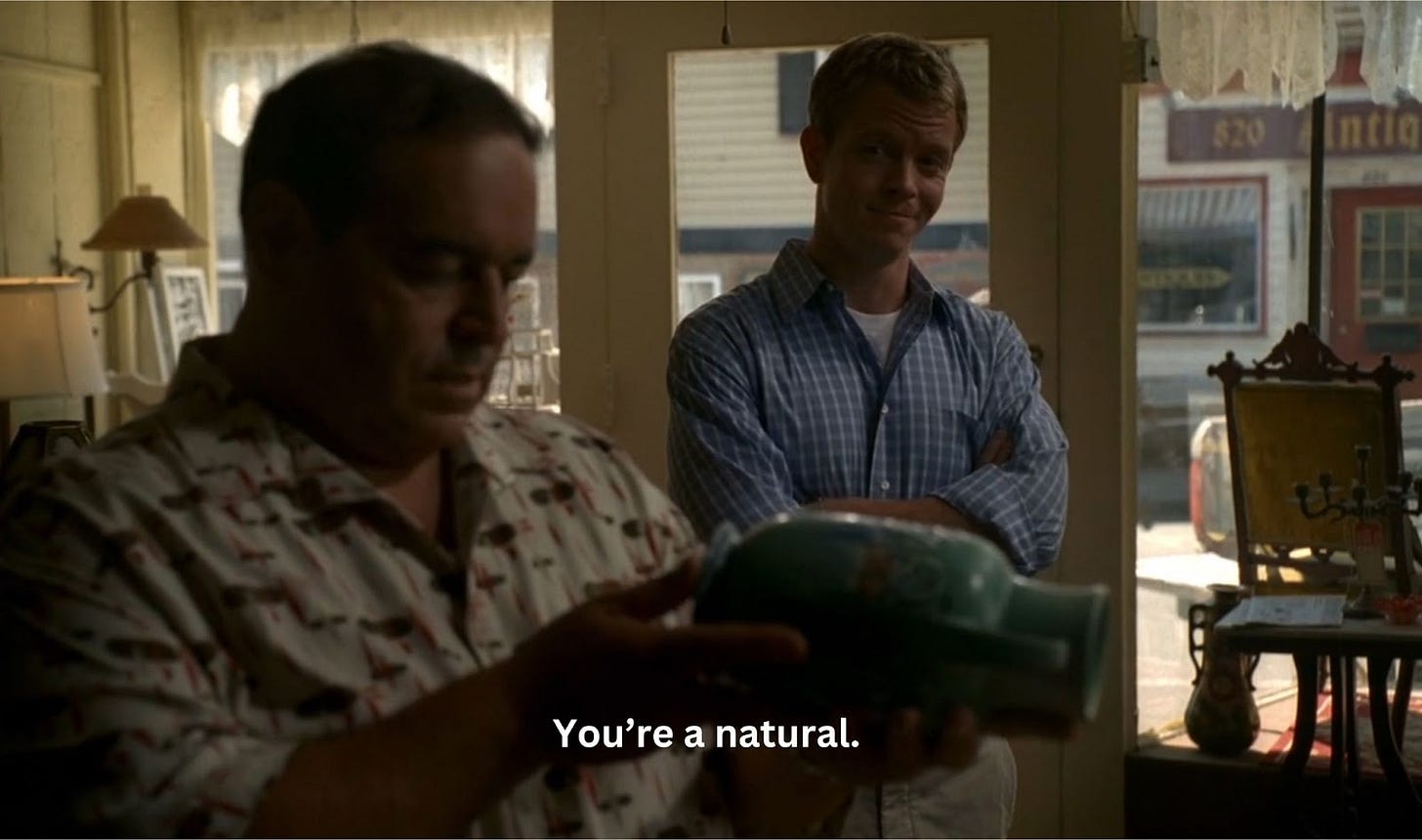Guest Post: Gabba-Gooped
How 'The Sopranos' surprised me with gay & supportive familial representation
The Yearning Rating: ✰✰✰✰
Romance: ✰✰
Sex: ✰
Storytelling: ✰✰✰✰✰
Performance: ✰✰✰✰
Yearning: ✰✰✰
Today’s guest writer is friend of The Yearning, Kayla Lewis-Hue! Kayla’s infectious passion and humor demand attention—yours specifically. Enjoy!
A close reading of The Sopranos: Season 6 Episode 5, Mr. & Mrs. John Sacrimoni Request...& Season 6 Episode 6 Live Free or Die
By Kayla Lewis-Hue
Okay, let’s talk about it: The Sopranos, the highly regarded classic a hundred times over. Critically acclaimed, majorly awarded, millions of viewers; all the requisites that make a show enjoyable for many decades. Despite all the glowing reviews, I personally did not think this would be a show for me. Nonetheless I digested the series, episode by episode, until I finally arrived at the episode that had me, well—Gabba-gooped! So, what elevates this organized crime drama past its mafioso counterparts? There's a closeted gay mobster.
David Chase’s painstaking character development is executed with a cutting level of detail in this 1999 hit. Tony Soprano is agreeably credited as the first anti-hero. He is a man who goes to therapy. Correction: He is a mob boss who goes to therapy, takes antidepressants, and loves ducks. Similar to Deborah Vance in Hacks, as a viewer, you know that you should not like them because of their distasteful, outdated, often problematic points of views. But there are moments you can relate to them—thus, the anti-hero. The creation of these characters is pivotal to good storytelling. Bad people exist and they can have tender moments.
If Tony's mental health as a Mob Boss with mommy issues is the spaghetti and meatballs, The Sopranos gay storyline is sprinkled on top like a fine, freshly grated Parmesan. To keep the identity of the character safe and this review spoiler-free, I won’t name them. But the shock is not that they are gay. The shock is they are one of Tony’s highest earners—a big time construction boss. He is not easily disposable. Tony has to make a decision in his recession-proof business: to focus on profits or protect his notoriety as king of the criminal underworld.
I understand that The Sopranos, like many of the prestige television series out there, is a serious time and energy commitment. I recommend watching these two episodes, and ending it on a happy note with our John Doe. The two episodes are a great combination of everything the show does right. The pace of the show is slow, dispensing subtle cues of what’s to come with limited, skillfully placed dialogue. As an audience, they trust us to understand who these people are.
In episode 5, Tony is fresh out of a coma and feeling vulnerable. His business partner, Johnny "Sack" Sacrimoni (Vincent Curatola), is in jail and wistfully planning the wedding of his daughter with the entire family present. This is one of the best episodes in the series because it drives home the cognitive dissonance every single character operates within. No character wants to face the reality of who they really are. Most characters don't want to ponder too deeply on what their lives could have been. Self reflection is depicted with selected dialogue, vibrant nuance through facial expressions, and a colorfully applied “Marone!” I find this incredibly relatable to my own hesitation on coming out as a lesbian. Heteronormative society comes with a tremendous amount of support. Shifting to the unknown and chosen family poses the possibility of rejection. It is easier to sit with what we know. Even though it takes an incredible amount of coordination to manage.
Fear of rejection is ever present in the series. The characters' fears are presented in a dark, comedic, and sometimes earnest way. Tony’s biggest fear is that his “social club,” a group of men, will think he is not cool anymore. Supporting the notion straight men care about what their friends think of them above everything else—very gay.
Most characters lead triple lives. The constant of every character is one of their lives is solely dedicated to the brotherhood of the Mafia. Very gay. This brotherhood is more important than their families, wives, and goomars. Juggling so many balls in the air, it’s inevitable, some drop and expose a secret the character is not prepared to face. Rumors are spreading that there is a gay mobster. Over Panera, the guys make a decision on the best thing to do…very gay.
In episode 6, Tony reckons with his own homophobia. He starts with what you’d expect a 47 year old man from New Jersey to say. He does give a shout out to the “Lesbian thing with Jennifer Beales” (The L Word mentioned ✔). Tony is wondering like the rest of us if she is “a d*ke in real life?” Tony shifts to what his catholic upbringing would support, disgust and contempt. Dr. Jennifer Melfi, his psychiatrist, portrayed by Lorraine Bracco, poses that he and his crew can’t be strangers to male-male sexual conduct. Tony exclaims, “You get a pass for that!”—very gay. Finally, Tony settles on that he doesn't care what happens between two consenting adults and that his main priority is his business.
The yearning in this episode comes from our John Doe’s desire to be viewed as irreplaceable by the traditionalist community he was born into. In a short scene we see John Doe in a leather bar smiling, desired, accepted and having fun. Episode 6 ends with John Doe holding the most expensive vase in the antique shop that he hesitated to enter throughout the episode. I'd like to think he is picturing his life and how it could have been. How he would decorate his apartment. The type of person he would've been if the majority of his life was not lived in secret.
Luckily I do not have to wonder what my life would have been like if I left construction behind and lived in domestic homosexual bliss. Yes, I worked in construction—very gay. Also yes, I know how it feels to have the support of strong traditional sisterhood in your developmental years—I was in a sorority. And yes, I love living in my well appointed apartment with curated queer knick knacks strewn about. And no, I wouldn't have it any other way.
While you may never watch the entire series, watch these episodes for yourself and decide if this can be categorized as LGBTQIA+ representation. It’s ironic, witty, and necessary. Queer people exist in conservative enclaves and they deserve representation in media. It is no one’s place to challenge the duality people have to embrace to exist. Communities may appear tight-knit and indestructible. Everyone has conflicting ideas on how they want to be perceived and what would damage their standing, notoriety, and influence in society. Reputation can precede reality.
I thought I was sitting down to watch a bunch of confident macho mafiosos. Instead, I got good portrayals of what it means to care for your community. The guys show up for every milestone in each other’s lives—weddings, funerals, and health scares. They cook for one another, they protect each other, and they challenge what it means to be family. If I were to re-shoot the closing scene of episode 6, Live Free or Die, BIRDS OF A FEATHER by Billie Eilish would be playing in the antique shop and [redacted] would be free. He’d remember his brotherhood that taught him to love men platonically and move forward with his life loving men romantically.
I want you to stay
'Til I'm in the grave
'Til I rot away, dead and buried
'Til I'm in the casket you carry
Birds of a feather, we should stick together, I know ('til the day that I die)
I said I'd never think I wasn't better alone ('til the light leaves my eyes)
Can't change the weather, might not be forever ('til the day that I die)












Monsters can be gay too! Being in the mob is actually very gay!!
I love this!